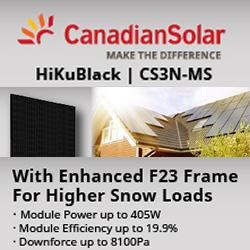SOLARIA CORPORATION SUES SERAPHIM AND AUTOWAY FOR MISAPPROPRIATION OF TRADE SECRETS
Solaria seeks damages and injunctive relief against defendants for their unlawful use of Solaria's proprietary solar technology
SOLARIA CORPORATION SUES SERAPHIM AND AUTOWAY FOR MISAPPROPRIATION OF TRADE SECRETS
Solaria seeks damages and injunctive relief against defendants for their unlawful use of Solarias proprietary solar technology
FREMONT, CA, APRIL 17, 2017 - Today Solaria Corporation, global provider of solar module technologies, filed suit against Jiangsu Seraphim Solar System Co., Ltd., Seraphim Solar USA Manufacturing Inc., and Suzhou Autoway System Co., Ltd. in Federal District Court for the Northern District of California. In the lawsuit, Solaria contends that defendants misappropriated Solarias trade secrets regarding its proprietary high-efficiency solar panel technology and used the information to make their own solar modules and manufacturing equipment without Solarias knowledge or consent. The complaint also includes claims for conversion, unjust enrichment/restitution, and unfair competition.
"We believe we have strong evidence that Seraphim and Autoway misappropriated Solarias proprietary technology and manufacturing processes for their own use, in violation of U.S. intellectual property laws," said Solaria CEO Suvi Sharma. "Our investigation is ongoing and we will take all appropriate action, including bringing in additional parties to the lawsuit if warranted, in order to protect our business interests," Sharma said.
Solaria has spent over a decade and made significant investments in developing its leading technology in solar cell cutting, stringing and panel making. Solaria protects its proprietary technology through patents and trade secrets. The present lawsuit alleges misappropriation of key aspects of Solarias technology protected by trade secrets. Solaria is investigating whether these companies, and potentially others, are violating its patents as well.
In September 2016, Solaria filed suit against various GCL companies, including GCL-Poly Energy Holdings, Ltd., in California State Court. In that lawsuit, Solaria claims that GCL misappropriated Solarias trade secrets and breached a non-disclosure agreement pursuant to which Solaria disclosed its high-efficiency solar module technology to GCL as part of a potential deal between the two companies. Solaria alleges that after GCL abruptly terminated the negotiations with Solaria, it embarked on its own effort to develop high-efficiency solar panels based on Solarias technology and disclosed Solarias trade secrets to Autoway and potentially others as part of that effort.
Early on in the GCL action, the Court entered a stipulated order requiring GCL Solar Energy, Inc., and its employees (including any former employees now employed by its affiliate, GCL New Energy, Inc.), officers, directors, and any wholly-owned subsidiary companies, not to use for their own purposes, or disclose to third parties, any Confidential Information provided by Solaria to GCL under the non-disclosure agreement. The order also required that these defendants return Solarias Confidential Information and preserve all information relevant to the action. The lawsuit against GCL is ongoing.
About Solaria Corporation
Solaria Corporation is a solar technology company that is paving the way for distributed, clean power generation through optimized solutions for a range of applications. Leveraging its proven core technology, field performance and sophisticated automation, Solaria delivers solutions that address a unique set of requirements for the rooftop and architectural markets. Solaria headquarters are in California. For more information, please visit www.solaria.com.
Contact: Susan DeVico, sdevico@solaria.com, +1 510 339-1527
Featured Product

Canadian Solar - HiKuBlack - Black Backsheet & Frame (Mono)
Aesthetic appearance for residential systems: With black backsheet & black frame, Power range 380 ~ 405 W, Low power loss in cell connection. Enhanced reliability: · Low temperature coefficient (Pmax): -0.34 % / °C, LID LeTID less than 2.0%, Lower hot spot temperature, Better shading tolerance.
